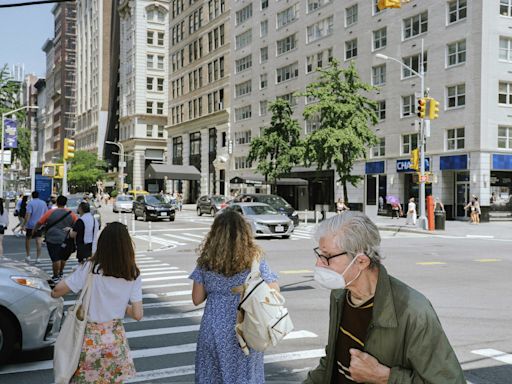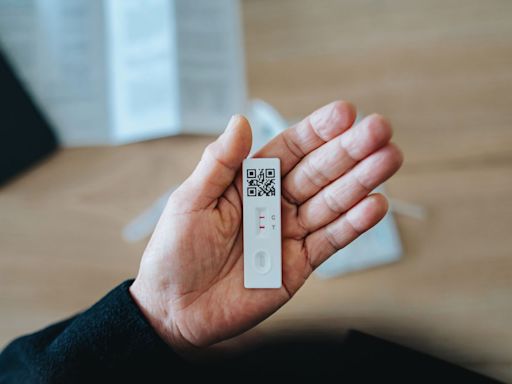Search results
Mar 15, 2024 · New guidance from the CDC advises people to isolate until they have been fever-free and with symptoms improving for at least 24 hours, and then take precautions for five days, which covers...
- TODAY via Yahoo
2 new COVID variants called 'FLiRT' are spreading in the U.S. What are the symptoms?
The new "FLiRT" COVID-19 variants, including KP.2, are spreading in the United States. Will there be a summer surge? Experts discuss KP.2 transmission, symptoms, and vaccines.
1 day ago
- Prevention via Yahoo
Here’s How Long the CDC Says to Isolate if You Test Positive for COVID in 2024
The CDC has released new COVID guidelines. See the current guidelines to follow after testing positive, including whether to isolate and when to return to work.
1 day ago
Feb 24, 2024 · You might be contagious at any time from when you are exposed until you develop symptoms. You are most contagious with COVID-19 two days before and three days after symptoms develop. You could be contagious for up to 10 days after symptoms start, regardless of whether symptoms are mild or severe.
Feb 15, 2023 · One 2021 review suggests that a person with COVID-19 is most contagious in the first week of illness. Therefore, they may be most contagious shortly before and shortly after symptoms appear.
May 11, 2023 · Isolation. If you test positive for COVID-19, stay home for at least 5 days and isolate from others in your home. You are likely most infectious during these first 5 days. Wear a high-quality mask if you must be around others at home and in public. Do not go places where you are unable to wear a mask.
Nov 5, 2020 · The Centers for Disease Control and Prevention (CDC) says most people with COVID-19 are contagious for up to 10 days following symptom onset. Symptom onset is the day you first start to feel sick. People who have had severe COVID-19 may be contagious for up to 20 days.
- www.health.com
- › …
- › Infectious Diseases
- › COVID-19
Sep 26, 2023 · Medically reviewed by. Soma Mandal, MD. When do you stop being contagious with COVID-19? Research has found that you are likely not contagious nine days after symptom onset. The Centers for...
Jul 23, 2021 · According to the Centers for Disease Control and Prevention (CDC), most people with mild-to-moderate COVID-19 are infectious for up to 14 days following initial exposure. This is known as...



